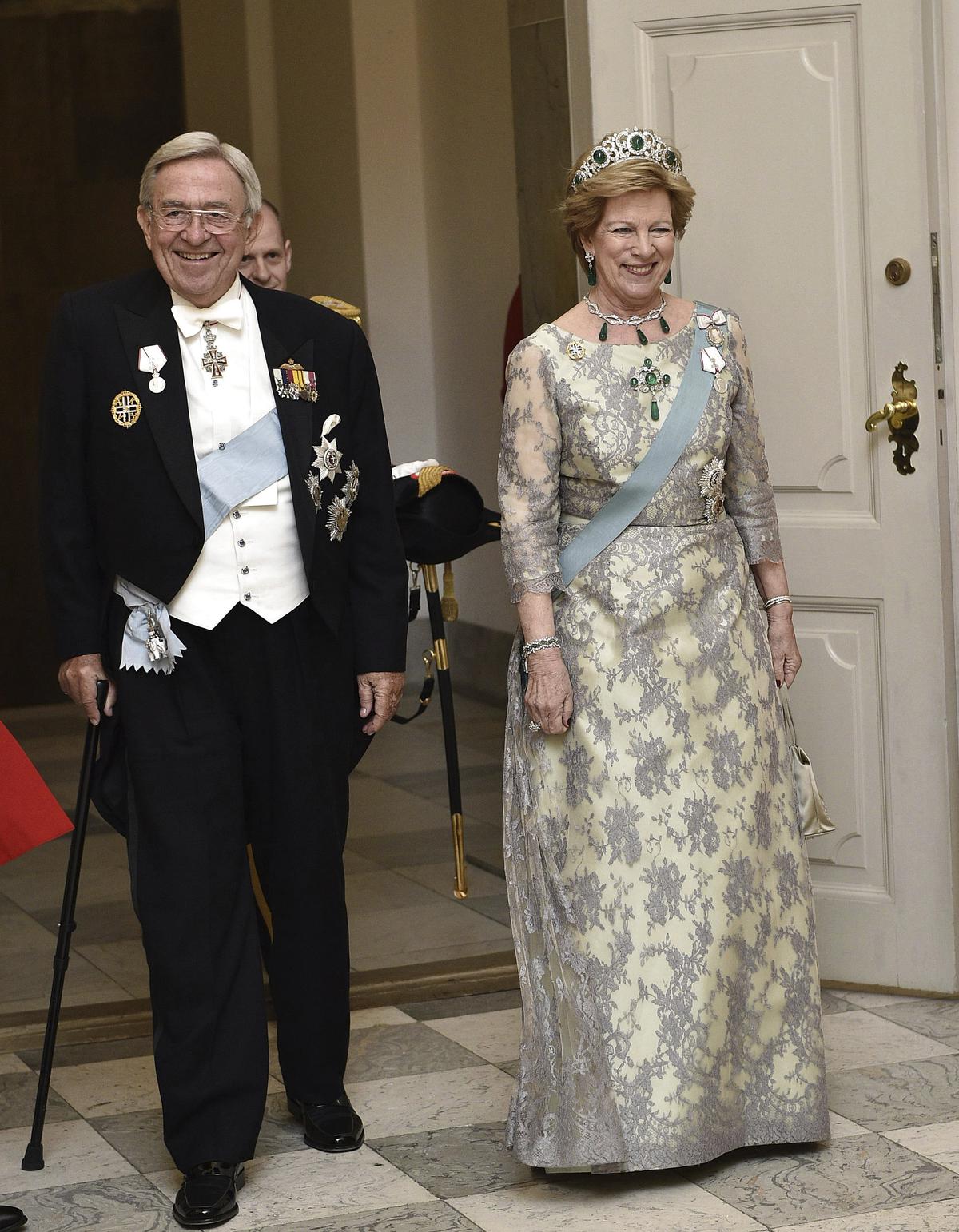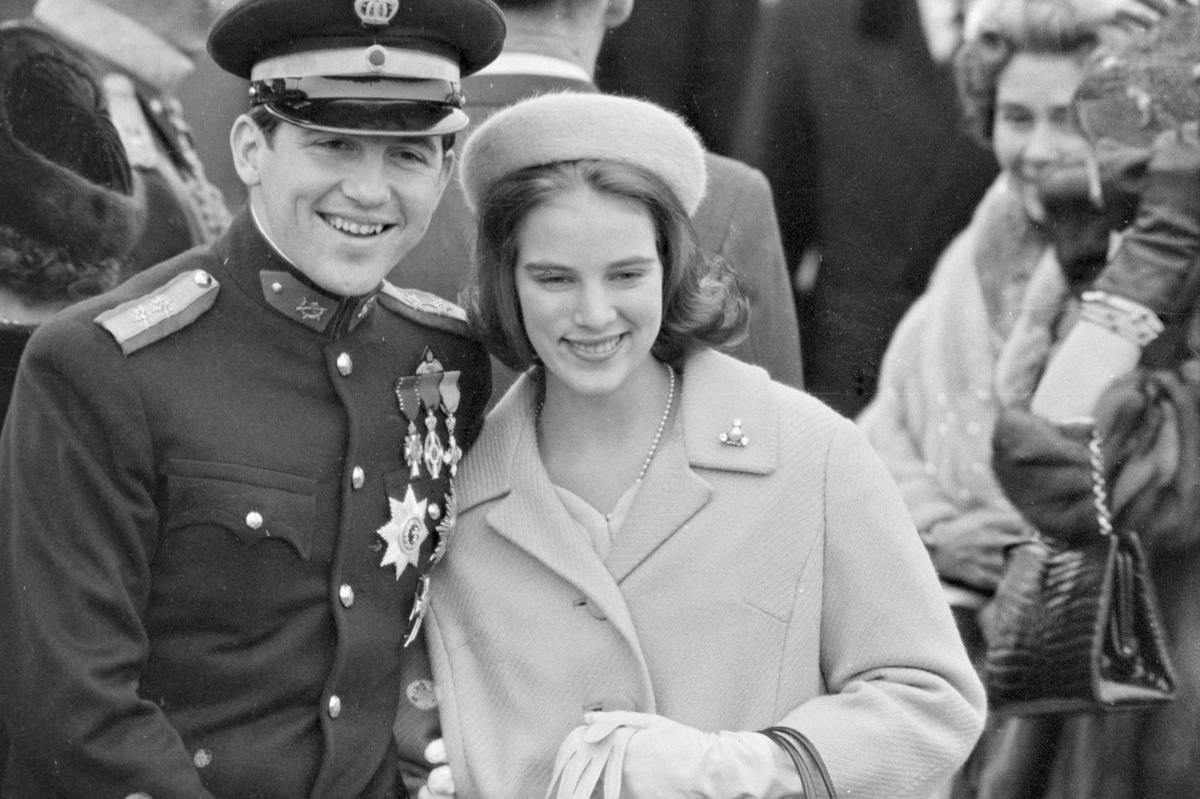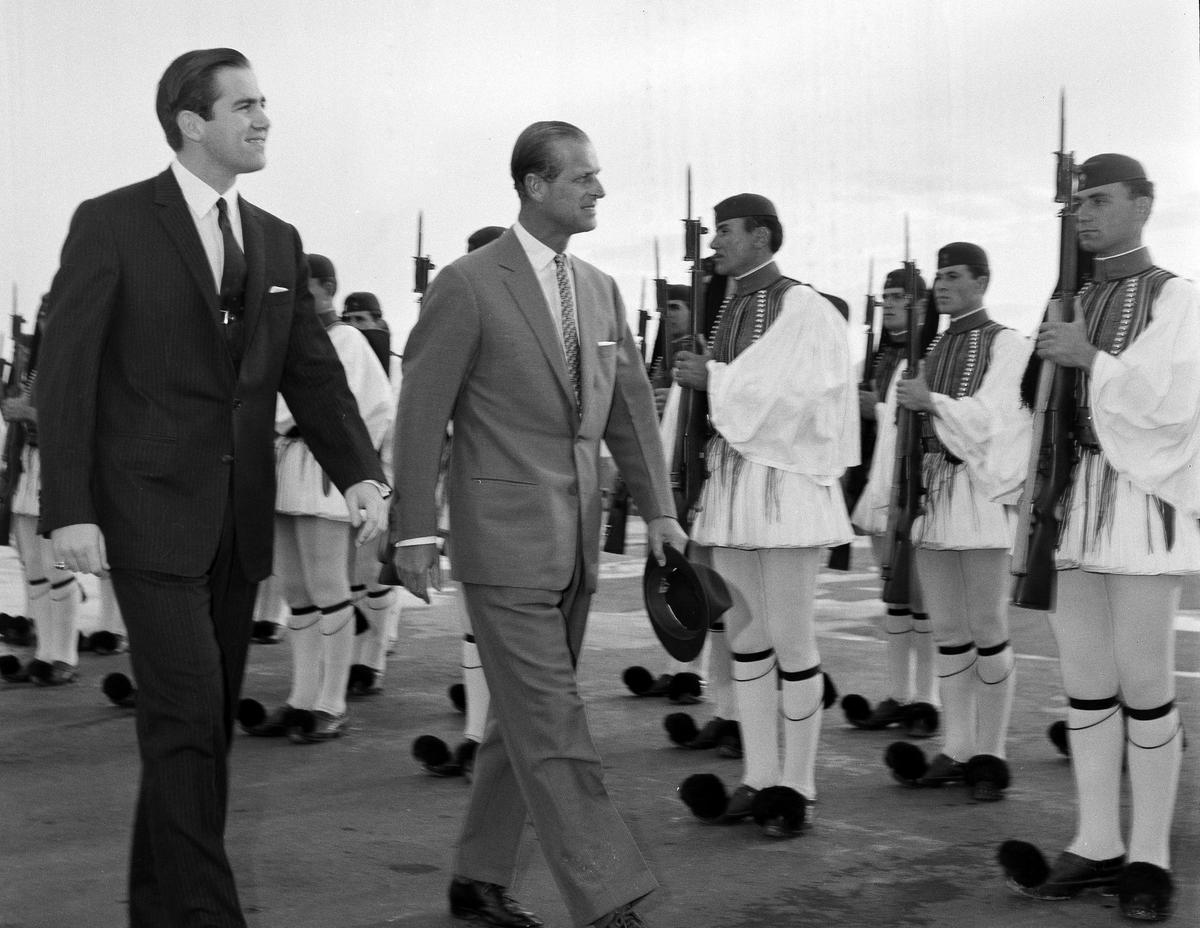Greece’s former and last king Constantine has died at a private hospital in Athens, his doctors announced late Tuesday. He was 82 years old.
Staff at the private Hegia Hospital in Athens confirmed to The Associated Press that Constantine had died after being treated in the intensive care unit, but had no further details pending an official announcement.
When he acceded to the throne as Constantine II in 1964 at the age of 23, the young emperor, who had already achieved distinction as an Olympic gold medalist in sailing, was hugely popular. By the following year he had lost much of that support with his active participation in conspiracies that brought down the popularly elected central government of Prime Minister George Papandreou.
The episode, still widely known in Greece as the “apostasy”, or defection from the ruling party of several MPs, destabilized the constitutional order and led to a military coup in 1967. Constantine eventually clashed with the military rulers and was forced into exile. The dictatorship abolished the monarchy in 1973, while democracy was restored in 1974 after a referendum dashed any hopes of Constantine ruling again.
Britain’s Queen Elizabeth II speaks with former King Constantine II during the opening ceremony of the Round Square International Conference at Wellington College in 2011. file. , Photo Credit: AP
Confined to only fleeting visits to Greece in the following decades, which stirred up a political and media storm each time, he was able to resettle in his home country in his declining years, when his presence came to be opposed There was no currency as a badge of vigilant republicanism. , With minimal nostalgia for the monarchy in Greece, Constantine became a relatively uncontroversial figure from the past.
Constantine was born in Athens on June 2, 1940, to Prince Paul, the younger brother of King George II and heir presumptive to the throne, and Princess Federica of Hanover. His older sister, Sofia, is the wife of former King Juan Carlos I of Spain. The Greek-born Prince Philip, late Duke of Edinburgh and husband of the late Queen Elizabeth II of the United Kingdom, was an uncle.
The family that ruled Greece since 1863, except for a 12-year republican interlude between 1922–1935, was descended from Prince Christian of Schleswig-Holstein-Sonderburg-Glücksburg branch of Denmark, later Christian IX of Denmark. ruling family.
Before Constantine’s first birthday, the royal family was forced to flee Greece during the German invasion in World War II, moving to Egypt, Alexandria in South Africa, and back to Alexandria. King George II returned to Greece in 1946 after a disputed referendum, but died a few months later, leaving Constantine as King Paul I’s successor.
Constantine was educated at a boarding school and then attended all three military academies as well as Athens law school classes as preparation for his future role. He also participated in various sports including rowing and karate, in which he holds a black belt.

Former King Constantine II and Queen Anne-Marie. file. , Photo Credit: AP
In 1960, aged 20, he and two other Greek sailors won the gold medal in the Dragon class – no longer an Olympic class – at the Rome Olympics. While still a prince, Constantine was elected a member of the International Olympic Committee in 1963, and became an honorary member for life in 1974.
King Paul I died of cancer on March 6, 1964 and was succeeded by Constantine, weeks after the Center Union Party had triumphed over the conservatives with 53% of the vote.
The Prime Minister, George Papandreou, and Constantine initially had a very close relationship, but this soon soured over Constantine’s insistence that control of the armed forces was the prerogative of the Emperor.
With many officials toying with the idea of a dictatorship and seeing any non-conservative government as soft on communism, Papandreou wanted to control the Ministry of Defense and eventually sought to appoint a Defense Minister as well. After an acrimonious exchange of letters with Constantine, Papandreou resigned in July 1965.
Constantine’s insistence on appointing a government composed of centrist defectors, which won a narrow parliamentary majority on the third attempt, was highly unpopular. Many saw him as being manipulated by his scheming mother, the Dowager Queen Frederica. “People don’t want you, take your mom and go!” became a rallying cry in the often violent protests that shook Greece in the summer of 1965.
Eventually, Constantine made an armistice of sorts with Papandreou and, with his agreement, appointed a government of technocrats and then, a conservative-led government, to hold elections in May 1967.
But, with heavy support from the Union of Center and with Papandreou’s left-leaning son Andreas rising in popularity, Constantine and his courtiers feared revenge and prepared a coup d’état with the aid of high-ranking officials. .

Former King Constantine II and Queen Anne-Marie pose for a photograph in Athens in 1963. , Photo Credit: AP
However, a group of low-ranking officers, led by colonels, were preparing their own coup and were informed of Constantine’s plans by a mole, a general whom he had won over to his side, on 21 April. , 1967 declared a dictatorship.
Constantine was surprised and his feelings towards the new rulers were evident in the official picture of the new government. He pretended to go with them while preparing a counter-coup with the help of northern Greece and a navy loyal to him.
On December 13, 1967, Constantine and his family left for the northern city of Kavala with the intention of marching on Thessaloniki and setting up a government there. The counter-coup, badly managed and botched, collapsed and Constantine was forced to flee Rome the next day. That ruler would never return as king.
The junta appointed a regent and, following a failed naval counter-coup in May 1973, abolished the monarchy on June 1, 1973. A July referendum, widely believed to be rigged, ratified the decision.
When the dictatorship collapsed in July 1974, Constantine was eager to return to Greece, but was advised against it by veteran politician Constantine Karamanlis, who had returned from exile to lead the civilian government. Karamanlis, who also led the government between 1955–63, was a conservative, but he clashed with the court over its excessive interference in politics.
Following his landslide victory in the November elections, Karamanlis called for a referendum on the monarchy on 8 December 1974. Constantine was not allowed to campaign in the country, but the result was clear and widely accepted: 69.2% voted in favor of a republic.

In this March 25, 1965 file photo, Greece’s King Constantine II, left, and Britain’s Prince Philip review an honor guard of the Greek Royal Evzon Guard, as the prince arrives in Athens for a brief visit as the Greek’s guest arrives at the airport. royal family. Constantine, the former and last king of Greece, has passed away. , Photo Credit: AP
Shortly thereafter, Karamanlis famously stated that the nation had been rid of cancerous growths. Constantine said the day after the referendum that “national unity must take priority … I sincerely hope that developments will justify the result of yesterday’s vote.”
Until his final days, Constantine continued to style himself King of Greece and his children as princes and princesses, acknowledging that Greece was now a republic, even though Greece no longer recognized titles of nobility.
For most of his years in exile he lived in Hampstead Garden Suburb, London, and was particularly close to his second cousin Charles, Prince of Wales and now King Charles III.
While it took 14 years for Constantine to return to his country, briefly, in 1981 to bury his mother, Queen Federica, he multiplied his visits after that and has made it his home since 2010. Controversy continued: in 1994, the then socialist government stripped him of his nationality and confiscated what was left of the royal family’s property. Constantine sued the European Court of Human Rights and was awarded 12 million euros in 2002, a fraction of the 500 million he had sought.
Constantine traveled with a Danish passport as Prince of Denmark.
He is survived by his wife, the former Princess Anne-Marie of Denmark, youngest sister of Queen Margrethe II; five children, Alexia, Pavlos, Nikolaos, Theodora and Philippos; and nine grandchildren.